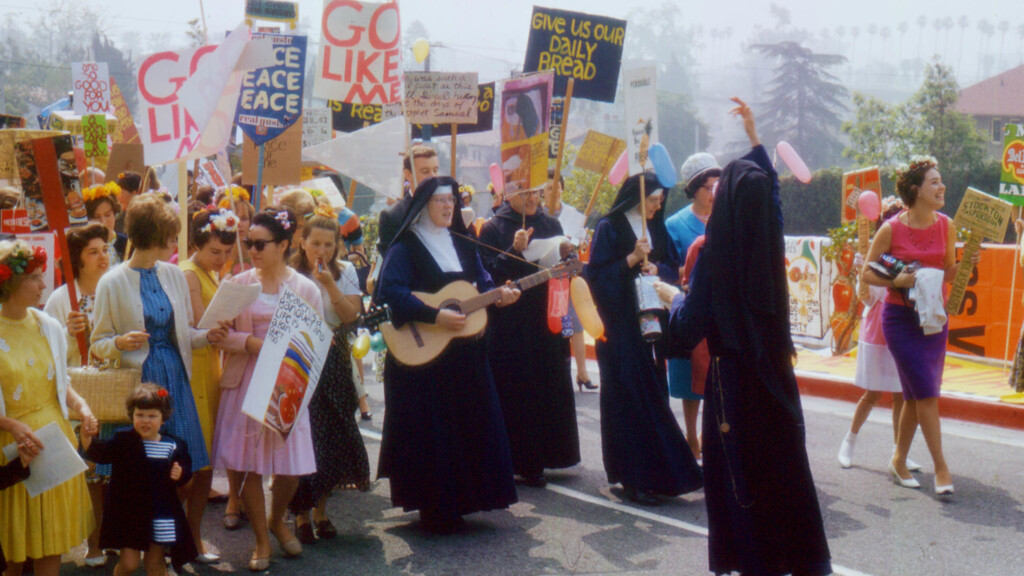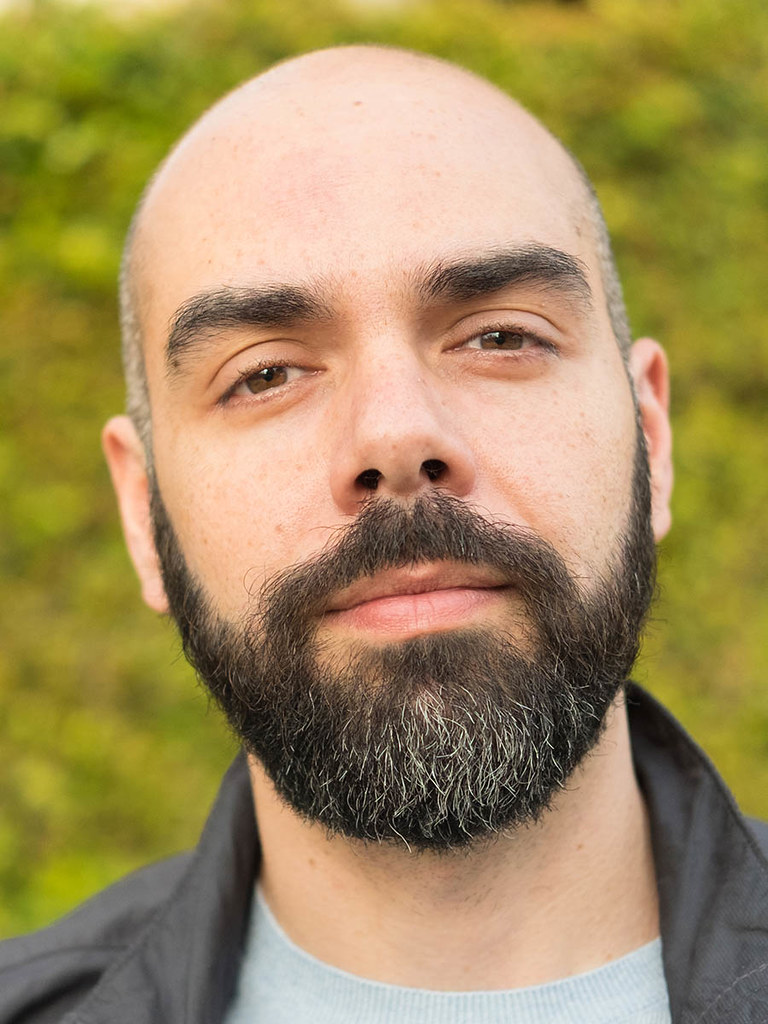In 1965, as the last sessions of Vatican II concluded in Rome, the number of Catholic nuns in the U.S. had reached its highest point of 180,000. Five years later, the numbers already had declined by nearly 10 percent and by late 2019, there were just 31,350. In 1970, when three-fourths of the Sisters of Immaculate Mary of the Heart (IHM) in Los Angeles made the difficult decision to sign the document of dispensation, releasing them from the vows of chastity, obedience and poverty they had taken, these “rebel hearts” organized an open, independent lay community of social justice, activism, spiritual and religious celebration, creative arts and education which continues to thrive to this day.
Their story, a quintessential chronicle of American feminism, animates the superior documentary Rebel Hearts, directed by Pedro Kos and co-produced and written by Shawnee Isaac-Smith, which is receiving its premiere at Sundance this weekend. A marvelously woven tapestry of archival footage, present-day interviews, rare audio recordings, animation and motion graphic effects, Rebel Hearts becomes the definitive historical account of one of the most controversial periods in contemporary American Catholicism.

At the outset, there is the collective impact of the nuns who embrace the opportunities for the liberating effects of Vatican II in nourishing a spiritual environment specifically for the needs of the Los Angeles community they serve. However, they run up against the odds of the ultra-conservative archbishop of the Los Angeles diocese, Cardinal James McIntyre, who was known more for his business and financial acumen than for his pastoral leadership. The challenge of containing the “rebel hearts” became more complicated, and the situation soon demanded the Vatican’s attention. However, McIntyre’s legacy essentially was nullified with the climax of the controversy when he was forced to retire from his post.
Meanwhile, new generations of young people have continued to flock to a lay community that does not require an ornate stone edifice to live through the expectations of the Gospels, a commitment the former nuns have sustained. In an interview with The Utah Review, Lenore Navarro Dowling, who was among the nuns who eventually left the IHM community and is featured in the film, says she was thrilled by the last two lines of Amanda Gorman’s poem, which was presented at the inauguration of President Joe Biden. Indeed, the lines resonate with the spirit that became the Rebel Hearts story:

When day comes we step out of the shade,
aflame and unafraid
The new dawn blooms as we free it
For there is always light,
if only we’re brave enough to see it
If only we’re brave enough to be it
The documentary was a truly homegrown project in Los Angeles, more than 20 years in the making. Isaac-Smith had begun conducting oral and filmed histories of the women including Anita Caspary, Helen Kelley and Pat Reif, among the leading voices in the movement. It was a significant prescient decision, given that some of the women featured in the film have since passed. Kos, a Brazilian immigrant who was raised Catholic, and co-producer Kira Carstensen discovered the interviews five years ago as they set forth on the project. Later, Judy Korin, who also was a producer of another recent documentary which premiered at Sundance (The Great Hack, 2019), joined the project.
“This group of women were true heroes and it was among the deepest honors I had ever experienced to hear their story and to have them trust it to me,” Isaac-Smith says in an interview with The Utah Review.
What makes Rebel Heart a truly ecumenical project that speaks just as compellingly to non-Catholics as it does to members of the church is the creative vision that Kos and his production team brought to the film. Catholicism is defined by a bewildering byzantine bureaucracy. Attempts to contextualize the administrative significance of what was happening in the Rebel Hearts community could easily send anyone so deep into the weeds that they lose the essential clarity and focus to keep the narrative momentum going.

The rare audio recordings excerpted in the film provided an opportunity to use motion graphics effects to emphasize key events and moments. Kos, in an interview with The Utah Review, says the aesthetics of the effect was reminiscent of the Justice League comics – an apt metaphor for the spiritual heroes – that is, the “rebel hearts” who are at the film’s center. “My imagination was bursting with the same intense imagination the IHM community had,” Kos explains. “As a child, I loved and was inspired by the Justice League. And, here, in real life, I was meeting these women who are heroes just like those in the Justice League.”
Likewise, the animation effects became handy visuals for comprehending the complexities of the Catholic organization. Most significantly, these elements aesthetically fit in with the artistic legacy of Corita Kent, a nun who also left the community but went on to became one of the best-known pop artists of her time. Kent’s artistic expressions epitomized the incredible intellectual blossoming of the IHM community, as many of the sisters went on to earn doctoral degrees and expand their skills as educators and community organizers. Dowling, for example, taught film classes.
The film leaves no doubt that Kent’s art confounded the cardinal who became impotent in trying to suppress what was happening in the IHM community. Her screen prints from the 1960s combined sentiments of spiritual joy with the formidable issues of the day including civil rights, poverty and the Vietnam war. Unashamedly political but never polemical, Kent had cultivated a keen pop sense in bringing brands, logos and text into her prints. As Vatican II had promised the vernacularization of the liturgy according to the languages spoken in their respective communities, Kent had channeled the ecclesiastical hopes in her art. Once the spirit was unleashed, there was no alternative but to proceed on the path of liberation. Featured on the cover of Newsweek magazine in 1967, Kent, who died in 1986, continued to thrive in Boston after she left the community in 1968. Kent’s work today can be seen, for example, in the Whitney Museum of American Art and the Museum of Modern Art in New York City.
Among the women who were inspired by the IHM’s fearless acts of social conscience was Rosa Manriquez, a lifelong Catholic, third generation Latinx mother and grandmother from East Los Angeles. Manriquez, as seen in the film, also is a Catholic priest and a member of Roman Catholic Womenpriest. She exemplifies how the IHM community has grown to include queer people as well as advocacy for immigration reform, workers’ rights, human rights issues, environmental protection and climate change, along with anti-racism training.
The community is essential to those who are disappointed in the traditional material setting of Catholicism but who also want to find new ways of expressing their identities as Catholics. “More young people today are aware of what matters to them in keeping their spiritual and theological roots,” Manriquez says in an interview. “They discover that they don’t have to throw it all away and they learn by listening to the voices in the Scriptures. I also would say that this is an important influence for young people to learn that when people who have been oppressed turn around and gain a position of power, they should never become the oppressor.”

Rebel Hearts is the sort of film that could be an eye-opener for a growing number of Americans who identify as religiously unaffiliated. A 2018 Pew Research Center survey indicated that six out of every ten respondents who identify as religiously unaffiliated most frequently said that questioning of religious teachings was the reason for their decision. Also, nearly half of the respondents said the second most frequent reason for their decision was opposing the positions churches have taken on social and political issues. Fifty years after the IHM sisters made the most consequential decision of their lives, their spiritual commitment as Catholics is as vibrant as ever.
Rebel Hearts is one of three documentaries premiering at Sundance this year that received a fiscal sponsorship from the Utah Film Center. Geralyn Dreyfous, the center’s cofounder, also was executive producer through Gamechanger Films for the film.
For more information about festival tickets and film, see the Sundance website.
